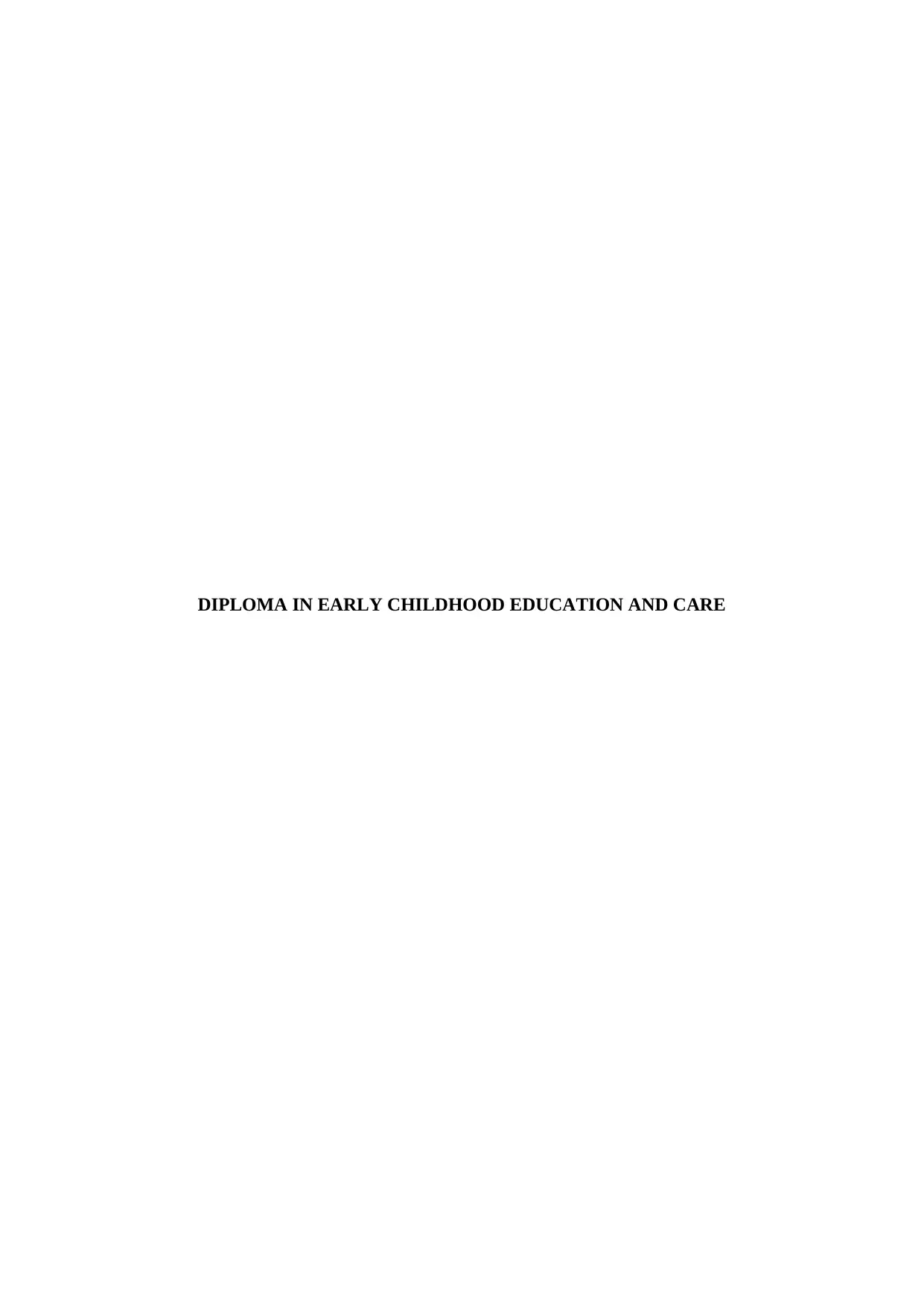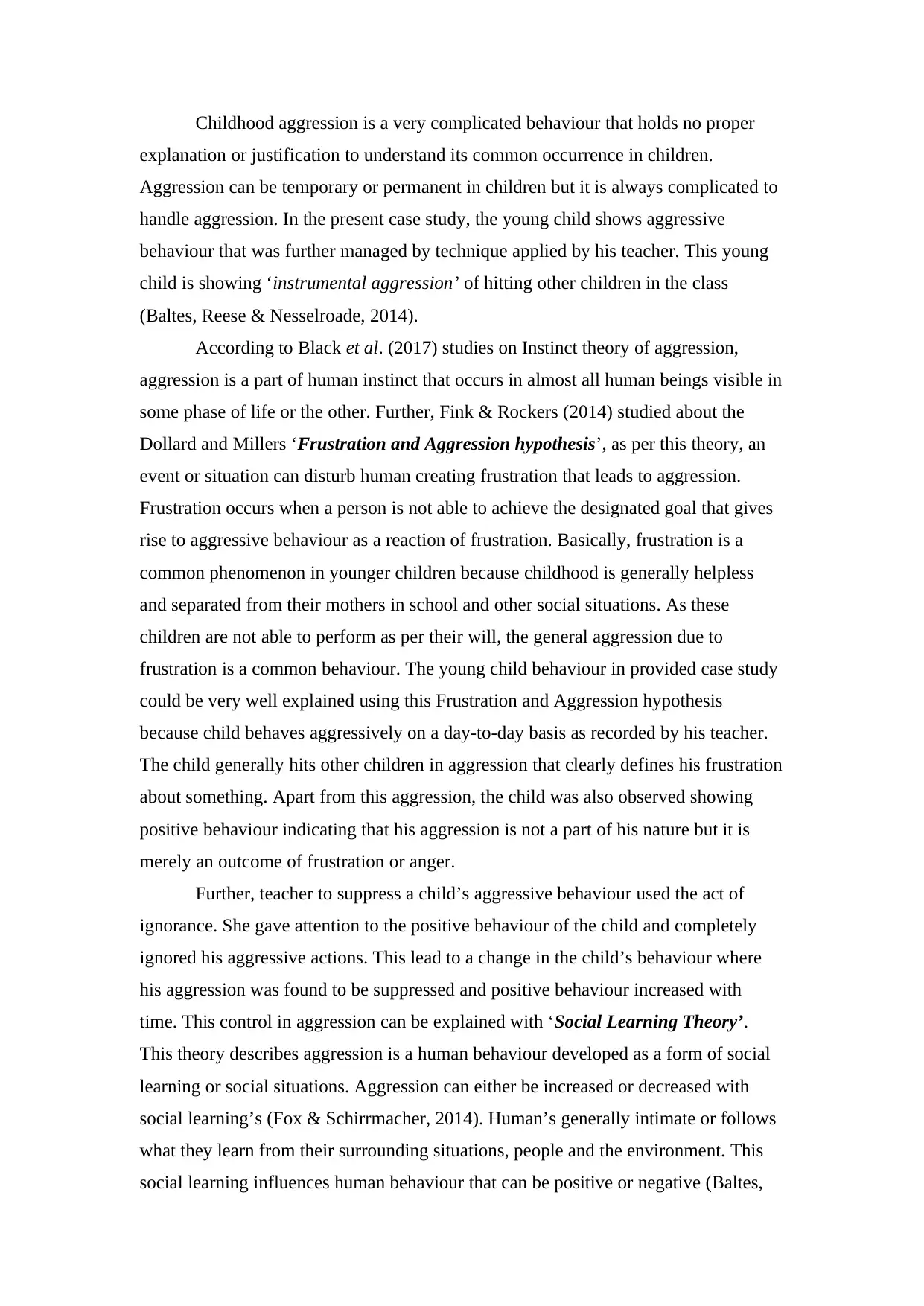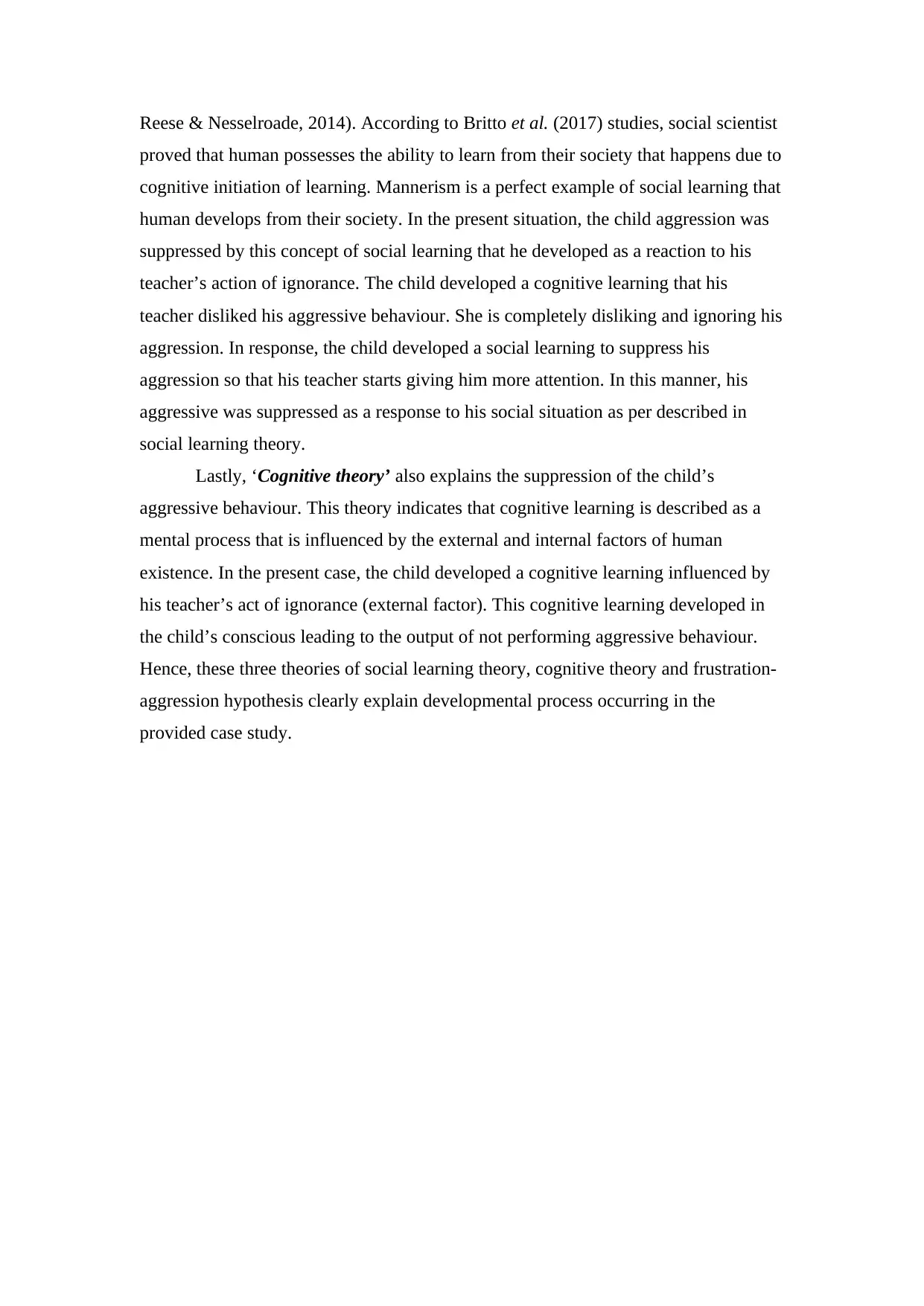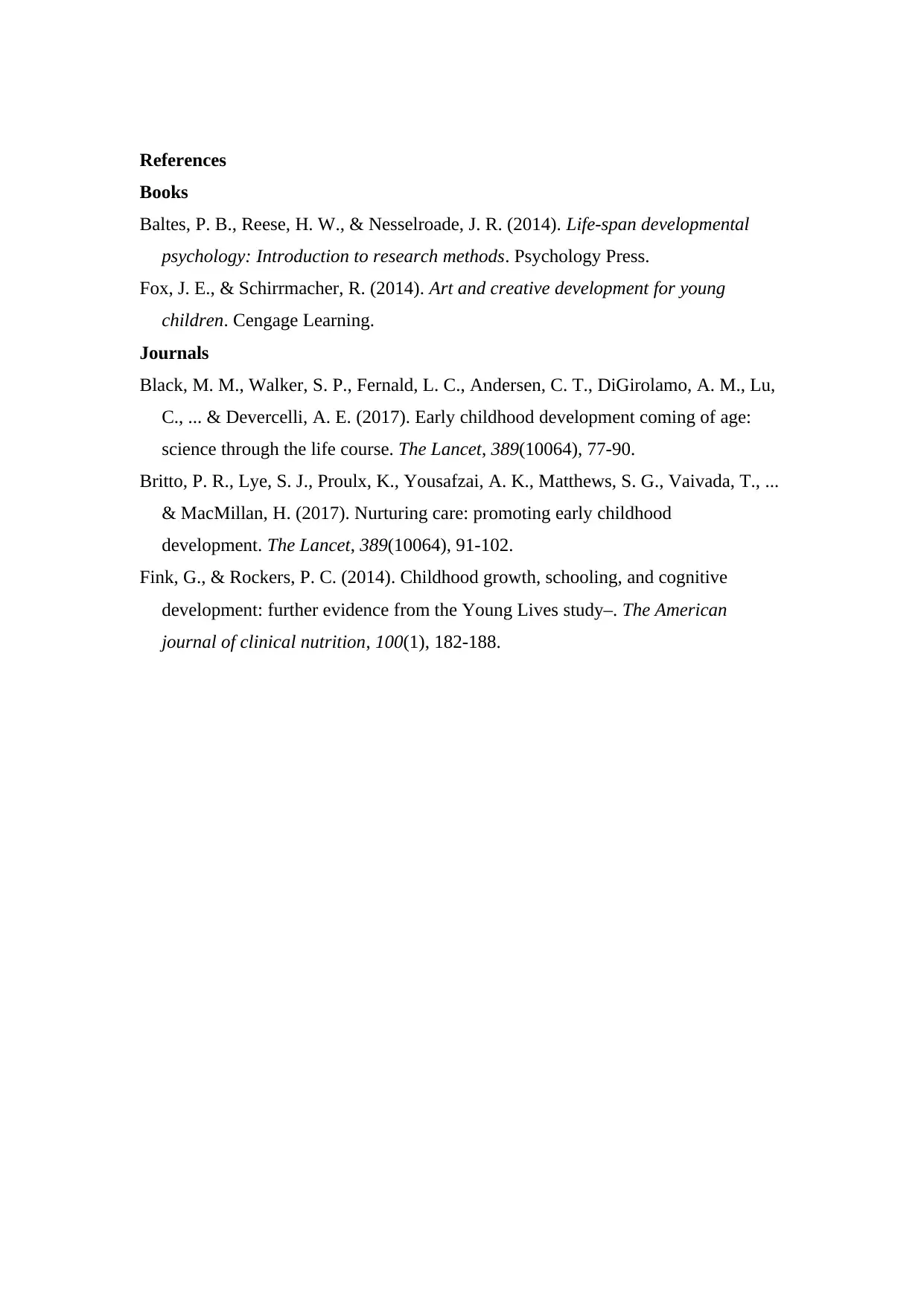Case Study Analysis: Childhood Aggression Management Techniques
VerifiedAdded on 2021/12/27
|4
|971
|29
Case Study
AI Summary
This case study examines childhood aggression in an early childhood education setting. The assignment analyzes a young child's instrumental aggression, specifically hitting other children. It applies several psychological theories to explain the behavior, including the frustration-aggression hypothesis, which links aggression to unmet goals, and the social learning theory, which suggests aggression can be learned through observation. The case also explores the cognitive theory, highlighting the influence of external factors on the child's behavior. The teacher's technique of ignoring aggressive actions and focusing on positive behaviors is discussed as a method to suppress aggression, leading to a change in the child's behavior over time. The case study references several academic sources to support its analysis, providing a comprehensive understanding of childhood aggression and its management within an educational context. The assignment further highlights the importance of understanding the underlying causes of aggression and the effectiveness of behavioral interventions.
1 out of 4











![[object Object]](/_next/static/media/star-bottom.7253800d.svg)